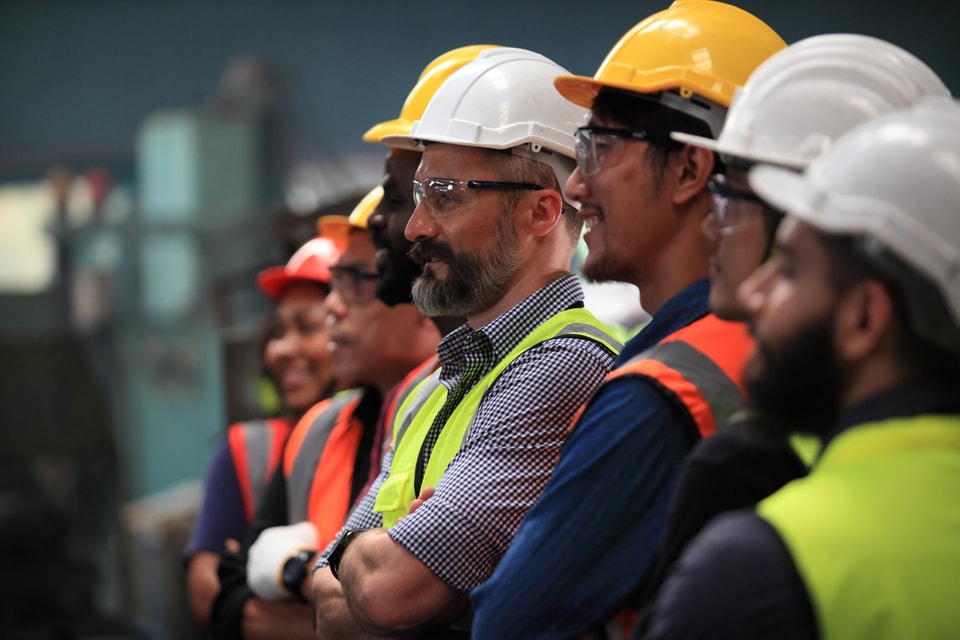Memo Published May 7, 2025 · 6 minute read
The Clean Energy Credibility Gap
Mary Sagatelova & Emily Becker

Climate advocates and environmental groups have spent decades promoting clean energy as a solution to climate change and rising greenhouse gas emissions. But despite sustained and wide-reaching public advocacy, new research from Third Way shows that many younger non-college-educated men remain unconvinced that clean energy is actually better for the environment than fossil fuels. Less than half of non-college men under 50 say clean energy has a lower environmental impact than fossil fuels, and 20% believe that clean energy is worse for the planet than oil and gas.
This key constituency is politically and practically essential to the energy transition: non-college men make up roughly 25% of the electorate and are significantly more likely to hold more conservative political beliefs. They understand that climate change is real, but they don’t believe advocates when they say clean energy will solve the problem at hand. That distrust poses a serious challenge to the viability of the energy transition.
Below, we explore the origins of younger non-college men’s inaccurate beliefs about clean energy, the implications for clean energy advocates—including policymakers, candidates, and other prominent stakeholders—and offer recommendations to combat these emerging misconceptions.
Incomplete Information: Surveying Beliefs on Clean Energy
In early 2025, we conducted focus groups of non-college men–two groups of white men, one group of Black men, and another among Latino men. These participants were not strongly partisan and exhibited a range of voting behaviors. They were universally concerned about the cost of living, and like most Americans, expressed support for environmental protection and broadly approved of clean energy. Despite that support, participants in all four groups raised doubts that clean energy technologies would deliver the environmental benefits advocates have promised.
Participants raised concerns about the actual carbon footprint of new clean energy projects and the impact of solar and wind construction on local ecosystems and wildlife populations. Here are a few of the arguments we heard:
- “Obviously, [wind turbines] kill a bunch of birds and stuff like that. They might not even actually be environmentally friendly.” - White man, aged 18-27, without a college degree.
- “You see each blade being carried by a semi that’s [burning] fossil fuels, and you kind of laugh a little bit to yourself. It’s clean energy [delivered] by dirty energy.” - White man, aged 18-27, without a college degree.
- “Environmentally, it almost cancels out the positives just by how you have to source it.” Latino man, aged 18-40, without a college degree.
- “By the time you’ve already built one wind turbine you’ve already spent and used so much other fossil fuels just to get it up and ready, and greased all those gears, I mean, is it as green as we think it is?” - Latino man, aged 18-40, without a college degree.
- “Over its lifetime, yes, but over the course of a limited amount‒10-20 years‒I don’t think clean energy is cleaner. I’ve seen some of the damage that lithium mining does‒and that’s not even including what gets wasted‒that’s just how you’re extracting it from the ground.” - White man, aged 28-40, without a college degree.
Many of their concerns were rooted in truth: wind turbines can disrupt local ecosystems, and there are certainly carbon emissions and other environmental impacts incurred at different points in the renewable energy supply chain. But legitimate concerns become dangerous without a broader understanding of how environmental impact varies across different energy sources. And outside of highly technical circles, that broader context is rare.
In our survey of 800 non-college-educated men under 50, many respondents were unaware that wind, solar, nuclear, and other clean energy technologies dramatically outperform fossil fuels across almost all measures of environmental impact. Despite that, 42% of respondents said fossil fuels had a better than or comparable environmental impact to clean energy.
It would be easy to say that the best response to non-college-educated men’s beliefs on clean energy would be for advocates to further clarify the environmental benefits of clean technologies. Even with a clearer understanding of environmental impacts, non-college-educated men are still unlikely to prioritize clean energy investments. Only 4% of non-college men under 50 rank fighting climate change as the top issue facing the country today, with a plurality ranking economic concerns as their highest priority. How can advocates compel this group to support clean energy, even if climate isn’t a core priority?
To Build Support, Speak to What Matters
Non-college-educated men understand clean energy as a tool to address climate change–they just don’t think it’s a very effective one or that it addresses core economic concerns.
In an open-ended question asking why the US should transition to clean energy, nearly half of survey respondents volunteered environmental protection and climate change. But when asked to choose from a list, participants ranked climate change among the least convincing reasons to support a US energy transition. The association between clean tech and environmentalism is strong and well-established in their minds, but it isn’t compelling or motivating for younger non-college men. By contrast, a plurality of respondents cited economic motivators as the most compelling reasons for clean energy investments, including the potential to lower energy costs.
Economic concerns cut both ways. In our survey, concerns about high costs seriously undercut support for clean energy. Over 60% of participants cited high costs and adverse impacts on energy prices as the most compelling reasons to oppose clean energy projects. And attacks on clean energy, including messaging on up-front costs and potential impacts on energy prices, reduced support for clean energy manufacturing by 16 points.
Effective messaging on clean energy for this demographic will close the gap between what younger non-college men care about and what they believe clean energy can achieve. That means clearly and effectively communicating what clean energy can do for non-college men’s wallets, employment prospects, and long-term economic security.
Methodology
From February 18-25, 2025, Third Way and Impact Research conducted polling via an online panel of 800 non-college-educated men aged 18-49, with a +/- 3.5 credibility interval. We also conducted four virtual focus groups from January 29-30, 2025 among men without college degrees nationwide. Groups consisted of white men ages 18-27, white men ages 28-40, Black men ages 18-40, and Hispanic men ages 18-40. All participants were swing voter, not firmly committed to either party.

